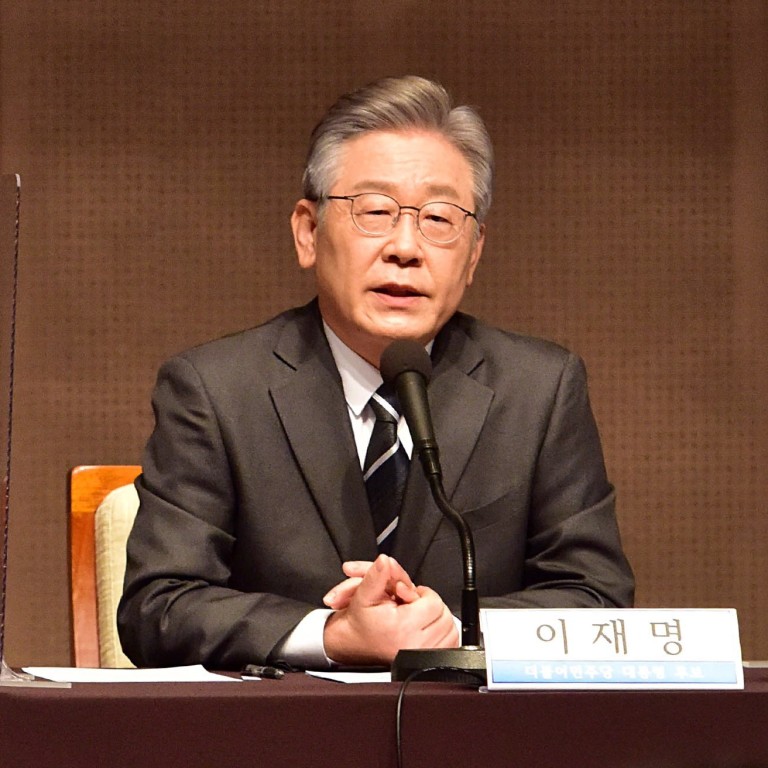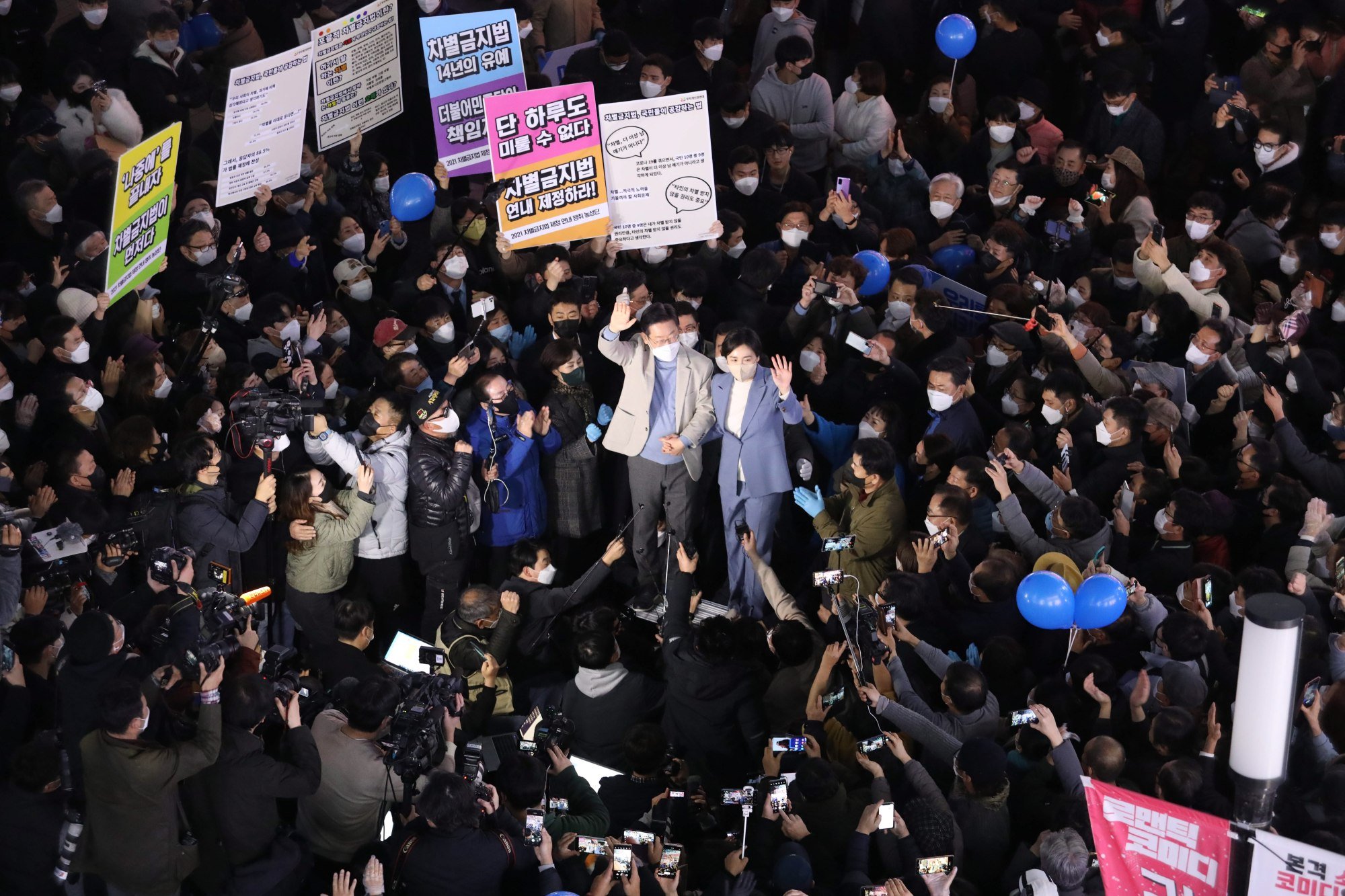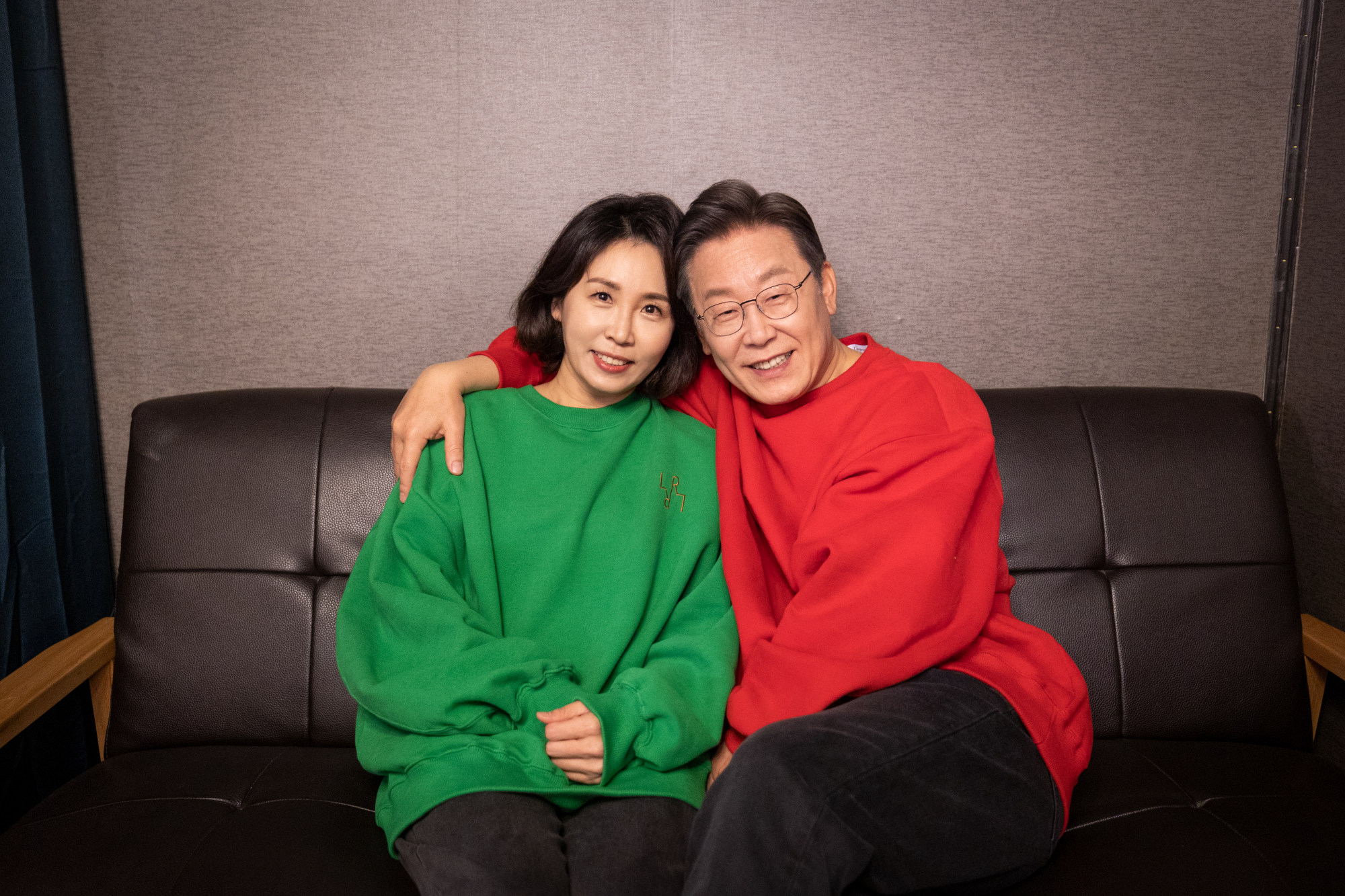
South Korea doesn’t need to pick between US and China, says presidential candidate Lee Jae-myung
- Ruling Democratic Party candidate Lee Jae-myung says he will seek US support for South Korea to have its own nuclear-powered submarines to counter North Korea
- But Beijing remains an important partner to Seoul and its role in denuclearising Pyongyang ‘can’t be dismissed’
Lee mentioned the Aukus alliance among the US, Australia and Britain that would see Australia build nuclear-powered submarines using US technology.
“It is absolutely necessary for us to have those subs. They are not weaponised in themselves, and technology transfer is under way to Australia,” he said in an interview with the South China Morning Post and two other media outlets.
“We can definitely convince the United States, and we have to.”

China has characterised the Aukus alliance as an effort to counter its influence that could hurt regional stability.
But Lee also stressed that Beijing was Seoul’s “strategic cooperative partner” even as it remained in a “comprehensive strategic alliance” with the US.
“At the same time, we must not put relations with China on the back burner as it is our largest trade partner and we can’t dismiss its role,” he said, referring to the sway Beijing holds over Pyongyang as the North’s main ally.
Current President Moon Jae-in’s Democratic Party has nominated Lee, 57, as their candidate for the March presidential polls.
Moon’s ‘pro-Beijing’ policies to blame for poor perceptions of China: rival
Diplomatic concerns
Since the collapse of the Hanoi summit in 2019, Pyongyang has rebuffed US proposals for denuclearisation talks to resume amid cries of Washington’s “double standards” and its “hostile policy” towards the North.
Lee called for “phased, simultaneous steps” to end the impasse, suggesting that both sides end calls for the other to show sincerity and instead move towards a settlement – whereby the US eases sanctions on North Korea that can be reimposed as a “snapback” measure if Pyongyang fails to halt its nuclear activity.
Washington is currently preoccupied elsewhere, however, as concerns mount over Russia’s military build-up along its border with Ukraine, an increasingly combative China and Iran engaging in nuclear development.

“We don’t need to link such issues with others such as social, economic and cultural exchanges,” he said.
‘Is Japan trustworthy?’: South Korean politician rejects 3-way defence alliance
A political outsider, Lee was born into poverty in Andong-gun, North Gyeongsang province, in 1964 and began his working life in a factory at age 12. After badly injuring his left arm in an industrial accident while still a teenager, he was exempted from South Korea’s compulsory military service – instead dividing his time between night school and factory work during the day.
Later advancing to law college, Lee passed the country’s highly competitive bar exam and went on to become an eloquent and widely read lawyer. He was elected mayor of Seongnam city in 2010, serving until 2018 when he became governor of the surrounding Gyeonggi Province, which also encompasses Seoul.
He has successfully campaigned on bold social welfare programmes that his opponents have criticised as “populist” policies.

